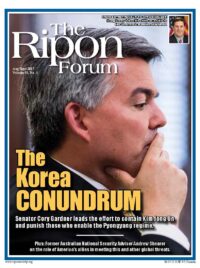
Donald Trump’s presidency seems to be going nowhere fast, but he does have one major political accomplishment under his belt: He has unified the normally fractious Democratic Party.
Whereas Ronald Reagan and the Bushes could count on some Democrats to support their initiatives, opposition to Trump is monolithic. Democrats regard him as a shambolic interloper with a severe and possibly dangerous personality disorder – a fake president.
Nonetheless, the Trump phenomenon has forced Democrats to confront our party’s structural weakness. Following successive mid-term blowouts, losing the White House to Trump shattered Democrats’ assumption that the nation’s changing demography was realigning U.S. politics inexorably around a new progressive majority.
It’s painfully clear that such complacency was unwarranted. Barack Obama’s impressive achievement in racking up successive presidential majorities masked an underlying erosion of Democratic strength in too many places. The party’s electoral appeal has narrowed steadily, both in the middle of the country and among working middle class voters. In effect, we have traded breadth of support across the whole electorate for intensity of support among minorities, millennials, single women, secular voters and professionals.
Having drifted into minority status, Democrats can’t win by mobilizing core partisans alone. The party must expand, otherwise we won’t be able to put an effective check on Trump, prevent Republicans from controlling redistricting after the 2020 Census or build a stronger bench of potential presidential aspirants by electing more governors.
The Trump phenomenon has forced Democrats to confront our party’s structural weakness.
So how can Democrats broaden our base and become competitive again outside the party’s urban and coastal strongholds? This is where the anti-Trump consensus yields to competing theories about the best way to engineer a party turnaround.
The party’s Congressional leaders recently produced their entry into the sweepstakes, “A Better Deal.” On the plus side, their blueprint moves beyond man-the-barricades posturing about “resistance” toward defining a genuine Democratic alternative. Yet it also recycles many familiar populist themes from the 2016 campaign, from the “rigged economy” to a milder version of Trump’s economic nationalism.
“A Better Deal” does advance a new theory for what’s gone wrong with the U.S. economy, and how to fix it. In this view, slow productivity, lagging wage gains and growing inequality stem from too much business consolidation. Concentration in various sectors – financial services, airlines, even “Big Beer” – certainly merits closer scrutiny. But as PPI economist Michael Mandel points out, big isn’t always bad. What’s crucial is to distinguish between high-innovation sectors that have kept consumer prices down – such as telecom and digital technology – from high-cost, low-innovation sectors, like health care.
In mid-August, another group of party leaders mostly from outside of Washington launched New Democracy with a very different approach. (Full disclosure: I’m one of the organizers of the effort). Described as a “home base” and support network for pragmatic Democrats, New Democracy’s mission is to bridge the country’s cultural and geographic divides and make the party more competitive in middle America.
Democrats can’t win by mobilizing core partisans alone. The party must expand.
The public face of New Democracy is a diverse group of elected Democrats from all levels of government – governors, state officials, mayors, Members of Congress and former Cabinet officials. They have banded together to craft a new Democratic battleplan for winning in the red and purple zones. That plan has three main parts:
1) Craft new ideas to help Democrats reach beyond our base to moderates, independents and disaffected Republicans. Rather than echoing Trump-style populism, New Democracy believes recapturing the high ground of economic hope and progress is the way to build a bigger Democratic tent. To that end, it is developing a progressive, pro-growth platform that seeks to revive U.S. economic dynamism and equip all Americans to rise in the emerging knowledge economy.
2) Provide financial and political support for pragmatic candidates for local, state and federal office. In today’s sharply polarized politics, such candidates are often outgunned by alliances of deep-pocketed donors on both the left and the right. That makes them vulnerable to primary challenges from the left as well as ultraconservative general election opponents. New Democracy is working to rebuild a financial base for the party’s pragmatic wing.
3) Organize a virtual network of grassroots support for pragmatic Democratic leaders and ideas. It’s no secret that much of the energy in U.S. politics has migrated to the ideological poles in recent years. Either we can accept polarization and shrinking common ground as a permanent condition in our democracy, or, as New Democracy aims to do, we can rally Americans who are fed up with today’s political tribalism to become political activists.
Who knows? That might even include moderate, GOP suburbanites who can’t abide Donald Trump or their party’s hard-right turn. In any case, New Democracy signals a new Democratic resolve to make the party competitive in every part of America.
Will Marshall is the President and founder of the Progressive Policy Institute.




